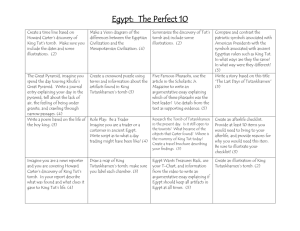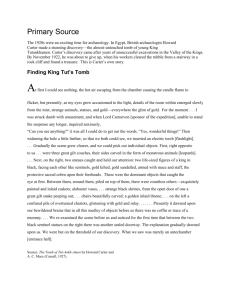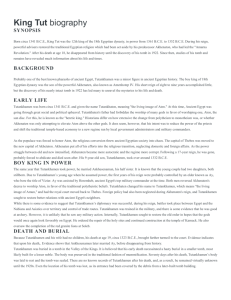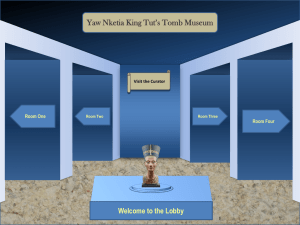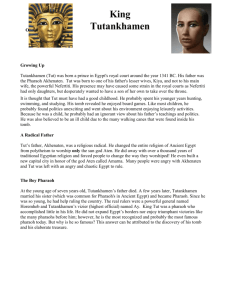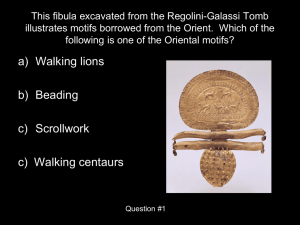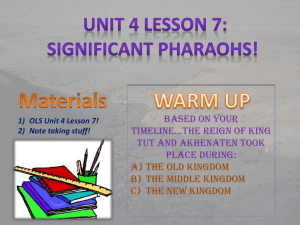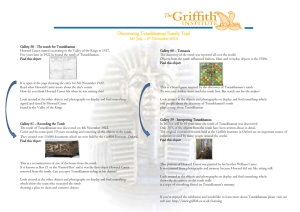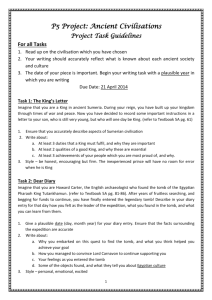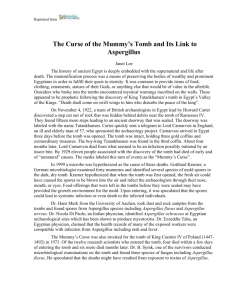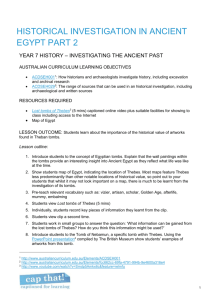Sarah Irwin King Tut
advertisement
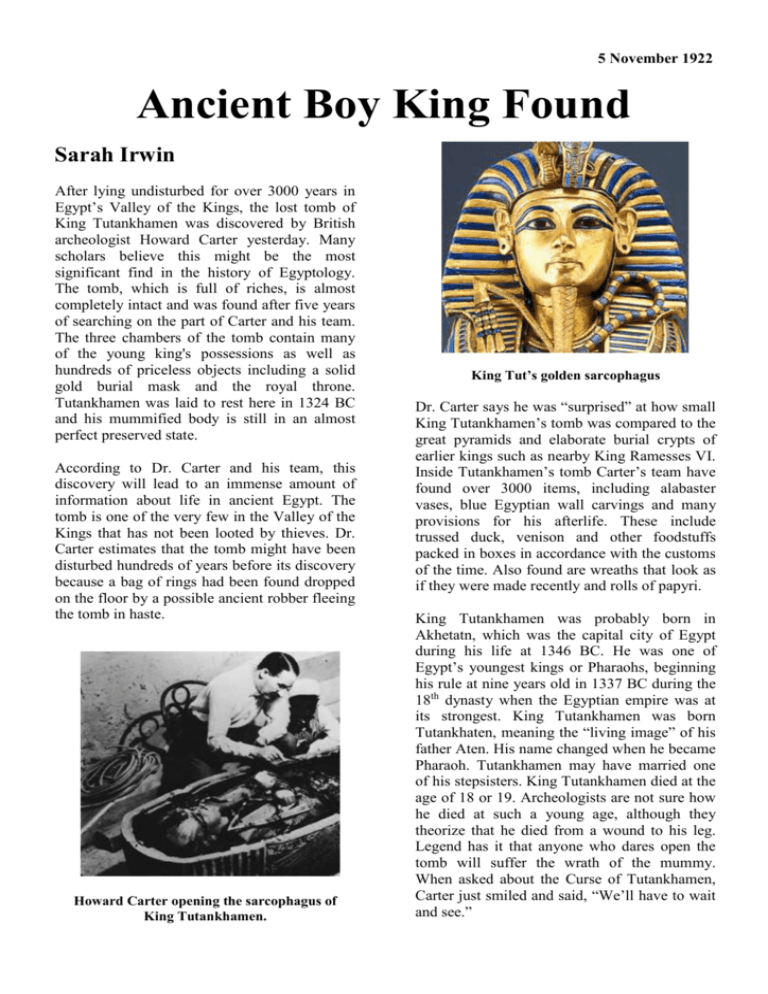
5 November 1922 Ancient Boy King Found Sarah Irwin After lying undisturbed for over 3000 years in Egypt’s Valley of the Kings, the lost tomb of King Tutankhamen was discovered by British archeologist Howard Carter yesterday. Many scholars believe this might be the most significant find in the history of Egyptology. The tomb, which is full of riches, is almost completely intact and was found after five years of searching on the part of Carter and his team. The three chambers of the tomb contain many of the young king's possessions as well as hundreds of priceless objects including a solid gold burial mask and the royal throne. Tutankhamen was laid to rest here in 1324 BC and his mummified body is still in an almost perfect preserved state. According to Dr. Carter and his team, this discovery will lead to an immense amount of information about life in ancient Egypt. The tomb is one of the very few in the Valley of the Kings that has not been looted by thieves. Dr. Carter estimates that the tomb might have been disturbed hundreds of years before its discovery because a bag of rings had been found dropped on the floor by a possible ancient robber fleeing the tomb in haste. Howard Carter opening the sarcophagus of King Tutankhamen. King Tut’s golden sarcophagus Dr. Carter says he was “surprised” at how small King Tutankhamen’s tomb was compared to the great pyramids and elaborate burial crypts of earlier kings such as nearby King Ramesses VI. Inside Tutankhamen’s tomb Carter’s team have found over 3000 items, including alabaster vases, blue Egyptian wall carvings and many provisions for his afterlife. These include trussed duck, venison and other foodstuffs packed in boxes in accordance with the customs of the time. Also found are wreaths that look as if they were made recently and rolls of papyri. King Tutankhamen was probably born in Akhetatn, which was the capital city of Egypt during his life at 1346 BC. He was one of Egypt’s youngest kings or Pharaohs, beginning his rule at nine years old in 1337 BC during the 18th dynasty when the Egyptian empire was at its strongest. King Tutankhamen was born Tutankhaten, meaning the “living image” of his father Aten. His name changed when he became Pharaoh. Tutankhamen may have married one of his stepsisters. King Tutankhamen died at the age of 18 or 19. Archeologists are not sure how he died at such a young age, although they theorize that he died from a wound to his leg. Legend has it that anyone who dares open the tomb will suffer the wrath of the mummy. When asked about the Curse of Tutankhamen, Carter just smiled and said, “We’ll have to wait and see.”
